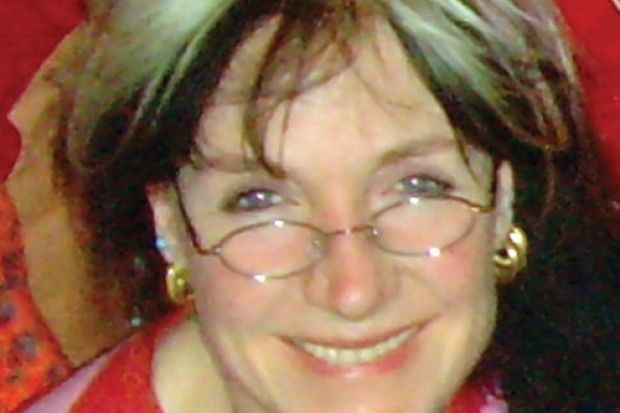Dido Davies was born on 5 October 1953 to a playwright and an eccentric actress and was brought up in Chelsea. She took a first degree in philosophy and art history at University College London (1973-75) and, after overcoming drug addiction, embarked on a PhD at Emmanuel College, Cambridge (1978-85). She was then appointed to a fellowship at St Edmund’s College, Cambridge, from 1985 to 1992.
The subject of Dr Davies’ PhD thesis was the novelist William Gerhardie (1895-1977), whose early work was much admired by Graham Greene and Evelyn Waugh but who became increasingly reclusive and was largely forgotten by the time he died. Believing he richly deserved revival, she published the first full account of his life, William Gerhardie: A Biography, in 1990.
Passionate about zoology, Dr Davies travelled far and wide to observe animals and at various times owned a crow, a chameleon and a raccoon. She once caused a minor scandal by visiting the Cambridge University Library’s rare books room with her boa constrictor, Flossie, wrapped around her waist.
After completing her scholarly study of Gerhardie, Dr Davies turned to other academic projects but also to a number of very different books under the pseudonym Rachel Swift. How to Have an Orgasm … as Often as You Want: Life Changing Secrets for Women and Their Partners (1993) proved a huge success and was, she wrote, “translated into seventeen languages, in seven different scripts, and sold in umpteen different countries”, although some women complained that only a single chapter was aimed at men.
This led to an equally successful sequel, Satisfaction Guaranteed: What Women Really Want in Bed (1996). The only downside of this lucrative new career was an expose in the Daily Mail.
“Dido had a warm, vivacious personality and the ability to mix serious academic scholarship with an exotic lifestyle replete with snakes, rats and other unusual pets,” recalled Paul Luzio, master of St Edmund’s. “She brought a real buzz to the college as a resident fellow and is very fondly remembered.”
Although her later years were dogged by pancreatic neuroendocrine cancer, Dr Davies continued to work on and almost complete three separate books: a murder mystery novel, a memoir of her days as a heroin addict and a study of the Tudor writer and statesman Sir Thomas More, drawing on hitherto unknown sources to reveal what happened to his body after his death.
She died on 15 June.
